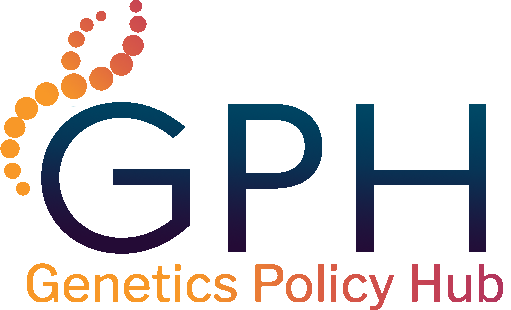From 2004 to 2024, the Health Resources and Services Administration (HRSA) funded the National Coordinating Center for the Regional Genetics Networks (NCC). NCC developed and maintained the Genetics Policy Hub.
With the conclusion of NCC funding, the Genetics Policy Hub (GPH) will no longer be updated or maintained. Information on GPH should be used for historical reference only.
Louisiana
This data is meant to be used for educational purposes to inform providers, patients, insurers, and state Medicaid agencies what genetic services may or may not be written into each state’s Medicaid policy. The database is not meant to indicate or imply whether a certain program will cover a specific service, since many decisions are made on a case by case basis. If you have specific questions about whether a service is covered, you should reach out to your plan administrator. Please see this disclaimer below for more information.
Medicaid Coverage Information Published
State Contact Information
Tara LeBlanc, Medicaid Executive Director
Email: tara.leblanc@la.gov
Mailing Address: Louisiana Department of Health | P. O. Box 629 | Baton Rouge, LA 70821-0629
Physical Address: 628 N. 4th Street | Baton Rouge, LA 70802 | PHONE: 225-342-9500 | FAX: 225-342-5568
Medicaid Customer Service 1-888-342-6207 | Healthy Louisiana 1-855-229-6848
General Genetic Testing Criteria
Genetic Testing Not Covered
State Specific Definition
Genetic Services for Children
Genetic Counseling Requirement
Instructions and application materials for genetic counselor licensure can be found at: https://www.lsbme.la.gov/content/application-instructions-initial-licensure-genetic-counselor
Counseling is required before and after all genetic testing. Counseling, at a minimum, must consist of the following and be documented in the beneficiary’s medical record:
- Obtaining a structured family genetic history;
- Genetic risk assessment; and
- Counseling of the beneficiary and family about diagnosis, prognosis, and treatment.
When performed by licensed genetic counselors, services are reimbursed using the procedure code
specific to genetic counseling. Reimbursement for this service is “incident to” the services of a
supervising physician and is limited to no more than 90 minutes on a single day of service.
When performed by providers other than licensed genetic counselors, an applicable evaluation and
management code must be used.
Metabolic Formula Coverage Legislation
LRS §22:246
LRS §22:469
LRS §22:1035
LR 48:6301 et
seq.
LR 32:319 et seq.
Metabolic Formula Coverage & Criteria
Louisiana Medicaid covers and considers medically necessary enteral formulas for beneficiaries of all ages without PA when the beneficiary has a diagnosis of an inborn error of metabolism made by a physician board certified in medical genetics or an advanced practice registered nurse collaborating with, or a physician assistant supervised by, a physician board certified in medical genetics. Enteral formulas are also covered and considered medically necessary without PA if a beneficiary is suspected of having an inborn error of metabolism, pending the results of a definitive evaluation, when such enteral formula is needed to prevent morbidity. In this case, the
enteral formula does not need to be ordered by a specialist. To provide documentation of medical necessity, the Genetic Disease program must maintain a completed Request for Enteral Formula for Inborn Errors of Metabolism order form in the beneficiary’s record which is signed and dated by the appropriate ordering provider. Claims for enteral formula are subject to post-payment review and non-compliance with this policy may result in recoupment of overpayments.
Prior Authorization Requirements
Genetic testing must be prior approved by the fiscal intermediary’s Prior Authorization Unit or the managed care organization.
Prior Authorization Forms
Fee Schedule
BRCA Testing Coverage
Louisiana Medicaid considers genetic testing for BRCA1 and BRCA2 mutations in cancer affected individuals and cancer-unaffected individuals to be medically necessary if the beneficiary meets the criteria.
Requirements for BRCA
Individuals meeting one or more of the below criteria are considered eligible:
- Individuals with any blood relative with a known BRCA1/BRCA2 mutation;
- Individuals meeting the criteria below but with previous limited testing (e.g., single gene and/or absent deletion duplication analysis) interested in pursuing multi-gene testing;
- Individuals with a personal history of cancer, defined as one or more of the following:
- Breast cancer and one or more of the following:
- Diagnosed age ≤45 years;
- Diagnosed at age 45—50 years with: Unknown or limited family history; or A second breast cancer diagnosed at any age; or ≥1 close blood relative* with breast, ovarian, pancreatic, or high-grade (Gleason score ≥7) or intraductal prostate cancer at any age.
- Diagnosed at age ≤60 years with triple negative (ER–, PR–, HER2) breast cancer;
- Diagnosed at any age with: Ashkenazi Jewish ancestry; or ≥1 close blood relative* with breast cancer at age ≤50 years or ovarian, pancreatic, or metastatic or intraductal prostate cancer at any age; or ≥3 total diagnoses of breast cancer in patient and/or close blood relatives*.
- Diagnosed at any age with male breast cancer; or
- Epithelial ovarian cancer (including fallopian tube cancer or peritoneal cancer) at any age.
- Exocrine pancreatic cancer at any age;
- Metastatic or intraductal prostate cancer at any age;
- High-grade (Gleason score ≥7) prostate cancer at any age with:
- Ashkenazi Jewish ancestry;
- ≥1 close blood relative* with breast cancer at age ≤50 years or ovarian, pancreatic, or metastatic or intraductal prostate cancer at any age; or
- ≥2 close blood relatives* with breast or prostate cancer (any grade) at any age.
- A mutation identified on tumor genomic testing that has clinical implications if also identified in the germline; or
- To aid in systemic therapy decision-making, such as for HER2-negative metastatic breast cancer.
- Breast cancer and one or more of the following:
- Individuals with a family history of cancer, including unaffected individuals, defined as one or more of the following:
- An affected or unaffected individual with a 1st- or 2nd-degree blood relative meeting any of the criterion listed above (except individuals who meet criteria only for systemic therapy decision-making); or
- An affected or unaffected individual who otherwise does not met criteria above but also has a probability >5% of a BRCA1/2 pathogenic variant based on prior probability models (eg, Tyer-Cuzick, BRCAPro, Pennll).
*For the purpose of familial assessment, close blood relatives include first-, second-, and thirddegree relatives on the same side of the family (maternal or paternal):
- 1st-degree relatives are parents, siblings, and children;
- 2nd-degree relatives are grandparents, aunts, uncles, nieces, nephews, grandchildren, and half siblings; or
- 3rd-degree relatives are great-grandparents, great-aunts, great-uncles, great grandchildren and first cousins.
Cystic Fibrosis Screening
Coverage is available, but criteria is unknown.
Hereditary Cancer Testing Coverage
Louisiana Medicaid considers genetic testing for adenomatous polyposis coli (APC) gene mutations to diagnose familial adenomatous polyposis (FAP) to be medically necessary if the beneficiary meets the following criteria.
Eligibility Criteria:
- Personal history of > 20 cumulative adenomas; or
- Known deleterious APC mutation in first-degree family member.
Lynch Syndrome Testing Coverage
Louisiana Medicaid considers genetic testing for Lynch syndrome to be medically necessary when a beneficiary meets the following criteria:
- Amsterdam II criteria; or
- Revised Bethesda Guidelines; or
- Estimated risk ≥ 5 percent based on predictive models (MMRpro, PREMM5, or MMRpredict).
Amsterdam II criteria
All of the following criteria must be met.
There must be at least three relatives with a Lynch syndrome associated cancer (cancer of the colorectal, endometrium, small bowel, ureter or renal pelvis) and all of the following criteria
should be present:
- One must be a first-degree relative to the other two;
- Two or more successive generations must be affected;
- One or more must be diagnosed before 50 years of age;
- Familial adenomatous polyposis should be excluded in the colorectal cancer; and
- Tumors must be verified by pathological examination.
Revised Bethesda Guidelines
One or more criterion must be met:
- Colorectal or uterine cancer diagnosed in a patient who is less than 50 years of age;
- Presence of synchronous (coexist at the same time), metachronous (previous or recurring) colorectal cancer, or other Lynch syndrome associated tumors**;
- Colorectal cancer with the MSI-H *** histology **** diagnosed in a patient who is less than 60 years of age;
- Colorectal cancer diagnosed in one or more first-degree relatives with a Lynch syndrome related tumor, with one of the cancers being diagnosed under 50 years of
age; and/or - Colorectal cancer diagnosed in two or more first- or second-degree relatives with Lynch syndrome related tumors, regardless of age.
**Hereditary nonpolyposis colorectal cancer (HNPCC)-related tumors include colorectal, endometrial, stomach, ovarian, pancreas, ureter and renal pelvis, biliary tract, and brain
(usually glioblastoma as seen in Turcot syndrome) tumors, sebaceous gland adenomas and keratoacanthomas in Muir-Torre syndrome, and carcinoma of the small bowel.
***MSI-H – microsatellite instability–high in tumors refers to changes in two or more of the five National Cancer Institute-recommended panels of microsatellite markers
****Presence of tumor infiltrating lymphocytes, Crohn’s-like lymphocytic reaction, mucinous/signet-ring differentiation, or medullary growth pattern.
Microarray Testing
Newborn Screening
Newborn screening is covered by Louisiana Medicaid.
Panel Testing
Pharmacogenetic Testing
Prenatal Testing Offered
Non-Invasive Prenatal Testing (NIPT) is a genetic test which uses maternal blood that contains cell-free fetal deoxyribonucleic acid (DNA) from the placenta. NIPT is completed during the prenatal period of pregnancy to screen for the presence of some common fetal chromosomal abnormalities. Common types of chromosomal abnormalities (aneuploidies and microdeletions) in fetuses include:
- Trisomy 21 (Down syndrome);
- Trisomy 18 (Edwards syndrome); and
- Trisomy 13 (Patau syndrome).
NIPT is considered medically necessary once per pregnancy for pregnant women over the age of 35, and for women of all ages who meet one or more of the following high-risk criteria:
- Abnormal first trimester screen, quad screen or integrated screen;
- Abnormal fetal ultrasound scan indicating increased risk of aneuploidy;
- Prior family history of aneuploidy in first (1st) degree relative for either parent;
- Previous history of pregnancy with aneuploidy; and
- Known Robertsonian translocation in either parent involving chromosomes 13 or 21.
NOTE: 1st degree relative is defined as a person’s parent, children, or sibling.
NIPT is NOT covered for women with multiple gestations.
Whole Exome Sequencing
Rapid whole genome sequencing is considered medically necessary for infants less than 12 months of age who are receiving inpatient hospital services in an intensive care or pediatric unit if they meet the following criteria:
- Are suspected of having a rare genetic condition that is not diagnosable by standard methods;
- Have symptoms that suggest a broad differential diagnosis that requires an evaluation by multiple genetic tests if advanced molecular techniques, including, but not limited to, traditional whole genome sequencing, rapid whole genome sequencing, and other genetic and genomic screening, are not performed;
- Timely identification of a molecular diagnosis is necessary to guide clinical decision making, and the advanced molecular techniques including, but not limited to, traditional whole genome sequencing, rapid whole genome sequencing, and other genetic and genomic screening results may guide the treatment or management of the infant’s condition;
- Have an illness with at least one of the following features:
- Multiple congenital anomalies;
- Specific malformations highly suggestive of a genetic etiology;
- Abnormal laboratory tests suggesting the presence of a genetic disease or complex metabolic phenotype like, but not limited to, an abnormal newborn screen, hyperammonemia, or lactic acidosis not due to poor perfusion;
- Refractory or severe hypoglycemia;
- Abnormal response to therapy related to an underlying medical condition affecting vital organs or bodily systems;
- Severe hypotonia;
- Refractory seizures;
- A high-risk stratification on evaluation for a brief resolved unexplained event with any of the following:
- A recurrent event without respiratory infection,
- A recurrent witnessed seizure-like event, or
- A recurrent cardiopulmonary resuscitation;
- Abnormal chemistry levels including, but not limited to, electrolytes, bicarbonate, lactic acid, venous blood gas, and glucose suggestive of inborn error of metabolism;
- Abnormal cardiac diagnostic testing results suggestive of possible channelopathies, arrhythmias, cardiomyopathies, myocarditis, or structural heart disease; or
- Family genetic history related to the infant’s condition.
Other Tests Covered
Other Information
Genetic testing for a particular disease should generally be performed once per lifetime; however, there are rare instances in which testing may be performed more than once in a lifetime (e.g.,
previous testing methodology is inaccurate or a new discovery has added significant relevant mutations for a disease).
Resources
Newborn Screening Reimbursement

Disclaimer: The information contained in the database has been obtained from sources believed to be reliable but NCC has not attempted to validate or confirm the information. The database may be updated periodically. However, the accuracy and completeness of the information contained in the database cannot be, and is not, guaranteed. NCC makes no warranty of the accuracy, completeness or timeliness of this information, and shall not be liable for any decision made in reliance on this information. It is the user’s responsibility to verify this information by contacting the state Medicaid agency directly.
The database contains links to third-party websites. These links are provided solely as a convenience to users and not as a guarantee, warrantee, or recommendation by NCC of the content on such third-party websites or as an indication of any affiliation, sponsorship or endorsement of such third party websites. NCC is not responsible for the content of linked third-party sites and does not make any representations regarding the privacy practices of, or the content or accuracy of materials on, such third-party websites. If you decide to access linked third-party websites, you do so at your own risk. Your use of third-party websites is subject to the terms of use for such sites.

